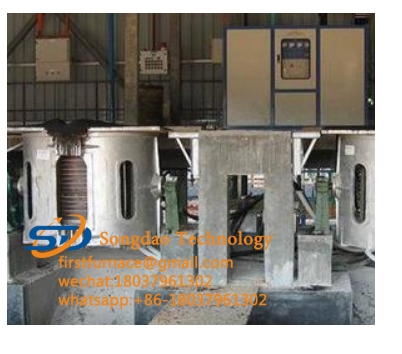- 19
- Sep
Development steps of intermediate frequency induction furnace technology
Development steps of intermediate frequency induction furnace technology

The first and second generation intermediate frequency induction furnace :
Due to poor start-up performance, slow melting speed, low power factor, high harmonic interference and high power consumption, it is currently in the phase of elimination.
The third generation of intermediate frequency induction furnace :
Although the start-up performance, melting speed, power factor, and harmonic interference have been greatly improved, the power consumption and harmonic interference indicators are difficult to meet the requirements of the national and local industries. At present, users seldom use them.
The fourth generation of intermediate frequency induction furnace :
The series rectifier intermediate frequency induction furnace saves more than 10% of electricity than the second and third generations . Start-up performance, melting speed, and harmonics can meet the general requirements of users, and power factor and power consumption indicators are difficult to meet the energy consumption and grid requirements issued by the state and local governments.
The fifth generation of intermediate frequency induction furnace :
The series inverter intermediate frequency induction furnace saves more than 15% of electricity than the second and third generations . Starting performance, melting speed, power factor, harmonic interference, and power consumption indicators are all in the best state, meeting or even exceeding national and local energy consumption and grid requirements indicators. It is the most energy-saving and highest power factor IF smelting equipment today. At the same time achieve a band two, one with a three-function.
| First generation | Second generation | Third Generation | Fourth Generation | Fifth Generation | |
| Pulse number | Six veins | Six veins | Twelve pulses (parallel rectification) | Twelve pulses (series rectification) | Six-pulse or (12-pulse series inverter) |
| Start method | Impact start | Zero-voltage start (or zero-voltage sweep start) | Zero voltage sweep start | Zero voltage sweep start | It activates |
| Startup performance | not good | Good (good) | good | good | good |
| Melting speed | slow | Faster | quick | quick | quick |
| Power factor | Relatively low | Low | Higher | high | Very high (always above 95%) |
| Harmonic interference | Big | Bigger | smaller | Very small | almost none |
| Melting power consumption | No power saving | No power saving | No power saving | Power saving (10%) | Very power saving (15%) |
